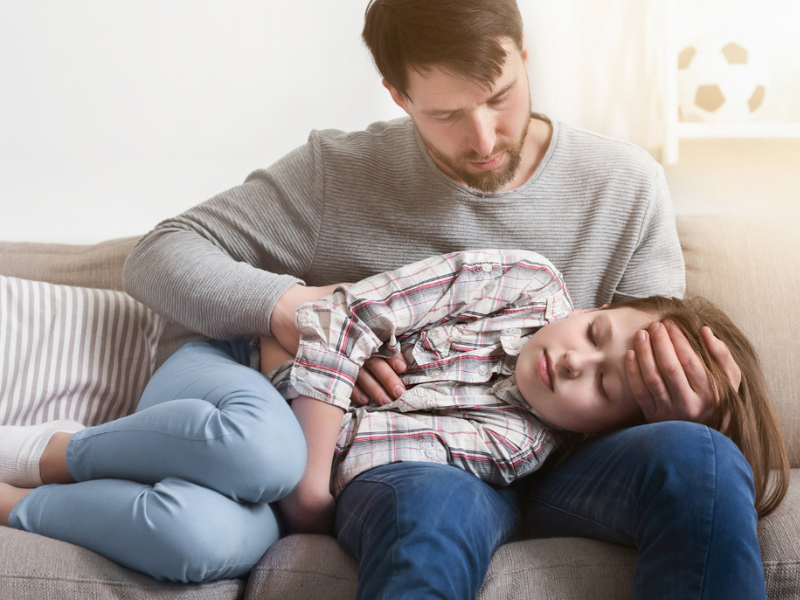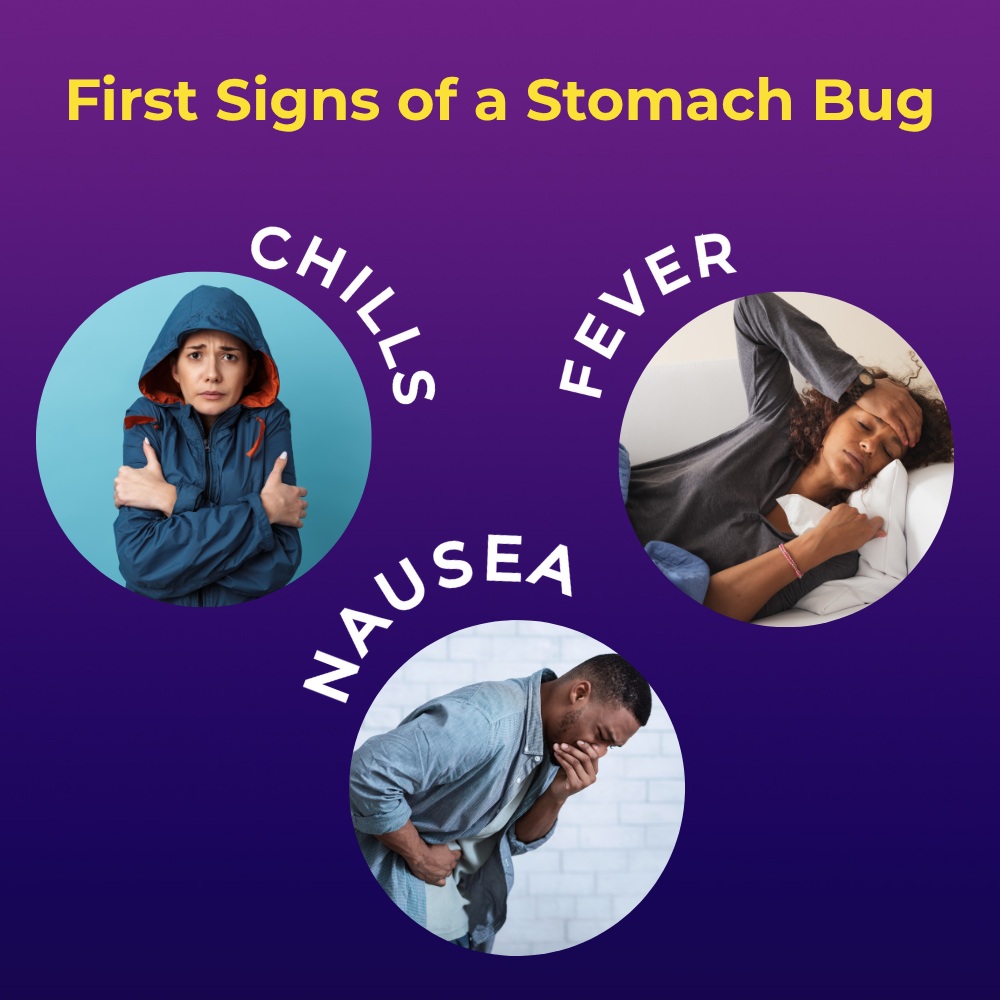“There’s a stomach bug going around” - a phrase dreaded by everyone, especially parents. Stomach bugs, or gastroenteritis, can turn up at the most inconvenient of times, debilitating you with unpleasant symptoms like diarrhoea, vomiting, and cramps.
Recognising the signs and symptoms in yourself or your child and knowing what to do to help with recovery can make a big difference. Here's what you need to know about how to recognise the first signs of a stomach bug and the best ways to manage your symptoms.

The exact symptoms you experience can depend on the kind of virus you have. In general, the first signs of a stomach bug come on suddenly and include chills, fever, and nausea. This is followed by diarrhoea, vomiting, and body aches and pains. Other symptoms also include:
Although very contagious, most stomach bugs are brief, with the majority of symptoms usually lasting only a day or two. Despite being brief, stomach bugs can be dangerous, especially for small children and babies who are more susceptible to dehydration. If you notice signs of dehydration in your child or baby, like a dry mouth and tongue or not passing urine, be sure to take them to the doctor as soon as possible.
When it comes to most viral stomach bugs, there is often no specific treatment. Antibiotics can be used to resolve the underlying cause of a bacterial infection but will have no effect on viral diseases. However, there are some over-the-counter (OTC) medications and self-care steps you can take to manage symptoms.
Nausea can be extremely uncomfortable, especially when combined with vomiting. Slowly drinking clear, ice-cold drinks and eating small amounts of light, bland foods can help when you are feeling nauseous. Your doctor may also recommend an anti-nausea medication to help manage the symptoms.
While vomiting usually clears quickly, diarrhoea can last much longer. This is often in part due to an imbalance in your gut bacteria, referred to as dysbiosis. The bacterium in your gut exists in a delicate balance. Factors like a virus or pathogen can upset this delicate balance, causing diarrhoea even after the virus has been cleared. There are several anti-diarrhoeal medications that help slow down diarrhoea. But, there is only one all-in-one product that helps with both diarrhoea and replenishing lost bacteria – Tasectan Duo.


Tasectan Duo and Tasectan Duo Paed combine clinically proven Gelatine Tannate and six known beneficial probiotics. This innovative combination helps to resolve both the diarrhoea and the dysbiosis, reducing discomfort and promoting faster recovery. Tasectan Duo is also unique in its mode of action. Unlike other medication in the class, Tasectan Duo works by creating a protective film over your intestinal walls, rather than slowing down gut movement. As a result, Tasectan Duo has no risk of rebound constipation and is clinically proven to be safe in children from 3 months old.
When you have a stomach bug, you lose a lot of fluids and electrolytes through diarrhoea and vomiting, which can result in dehydration. Although not strictly speaking a symptom of a stomach bug, dehydration is still one of the most serious complications of a stomach bug, especially in young children. It is very important that you drink plenty of clear fluids, including broth and ice chips. Small children should be offered small amounts of fluids every time they are sick or every 15 minutes.
Understanding and knowing what to take to manage the symptoms of a stomach bug can greatly reduce the discomfort and duration of the illness. Tasectan Duo and Tasectan Duo Paed, with their unique properties and inclusion of probiotics, provides a comprehensive treatment by not only alleviating symptoms but also aiding in the recovery and balance of gut health. Whether it's you or your little one struggling with a stomach bug, remember that managing hydration and following proper treatment guidelines are crucial for a swift recovery.

Don’t let diarrhoea slow your day.
Find Tasectan Duo at any Clicks, Dis-Chem, or independent pharmacy or shop online.